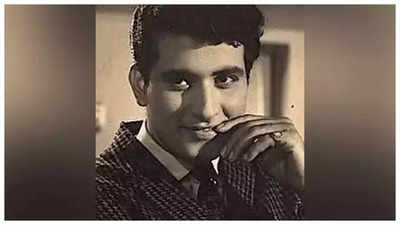Veteran actor and filmmaker Manoj Kumar , known for his iconic patriotic roles, passed away at the age of 87 on Friday, April 4, 2025. Fondly remembered as Bharat Kumar , he breathed his last at 4:03 am at a Hospital in Mumbai, where he had been receiving medical care since February 21. Prominent celebrities, including actors Aamir Khan , Akshay Kumar , Ajay Devgn, and filmmaker Karan Johar, paid tribute to the cinema icon.
Even politicians including PM Modi and President Murmu celebrated Kumar's legacy of highlighting social issues and patriotism through his films that ruled the box office in the late 1960s and 1970s. Here are some lesser known facts about the actor..

. From Harikrishan Goswami to Manoj Kumar Born Harikrishan Goswami on July 24, 1937, in Abbottabad (now in Pakistan), his journey into cinema was driven by his deep admiration for legendary actor Dilip Kumar. His fascination with films began when, as an 11-year-old, he watched Shabnam (1949) and was so inspired by the superstar's character Manoj that he decided that if he entered the film industry, he would change his name to 'Manoj Kumar'.
Education Qualification After moving to India post-Partition, Kumar completed his education in Delhi before stepping into Bollywood in the late 1950s. His initial films saw him playing romantic roles, but it was in the 1960s and 1970s that he truly emerged as a movie star. A Legacy of Patriotic Cinema Manoj Kumar’s career-defining moment came in 1965 when he starred in Shaheed, a biographical drama based on the life of freedom fighter Bhagat Singh.
However, it was his directorial debut, Upkar (1967), that cemented his status as a national icon. Inspired by then-Prime Minister Lal Bahadur Shastri’s slogan Jai Jawan, Jai Kisan, the film resonated deeply with audiences, portraying the sacrifices of soldiers and farmers alike. Following this success, Kumar became synonymous with patriotic cinema, earning the title 'Bharat Kumar'.
His films like Purab Aur Paschim (1970) and Roti Kapda Aur Makaan (1974) further reinforced his reputation. These movies not only entertained but also carried strong social messages about Indian values, self-reliance, and the impact of Western influences on Indian society. A Brief Stint in Indian Politics After retiring from active filmmaking, Manoj Kumar ventured into politics.
Ahead of the 2004 general elections, he joined the Bharatiya Janata Party (BJP). While he did not actively contest elections, he remained a vocal supporter of the party’s vision for India. Final Curtain Call Manoj Kumar’s final film as a director and actor was Jai Hind (1999), a patriotic drama that aligned with his signature storytelling style.
Staying true to his legacy of nationalism and social consciousness, the film aimed to instil a sense of pride and responsibility among Indians. However, despite Kumar’s reputation for delivering impactful patriotic films, the movie did not achieve the same level of success as his earlier works. Passing on the Torch Manoj Kumar, once acknowledged Akshay Kumar as the torchbearer of the patriotic film genre.
Reflecting on the actor's portrayal of nationalism on screen, he praised his heartfelt tribute in Namaste London, saying, “I’ve always considered Akshay my successor in portraying patriotism on screen. His recreation of my sequence from Hai Preet Jahan Ki Reet Sada in Namaste London was heartfelt and authentic. There’s no one like him when it comes to playing the role of a country-loving Indian,” the legendary actor had said.
He also praised Aamir Khan for his film choices. When asked which contemporary actor he thought could excel in such patriotic roles, Kumar had a clear answer: “Aamir Khan is definitely the best-suited actor for such roles. I really liked him in Taare Zameen Par and Rang De Basanti.
” Awards and Honours Throughout his illustrious career, Kumar was honoured with several prestigious awards, including a National Film Award for Upkar (1967), a Padma Shri in 1992 for his contribution to Indian cinema, a Dadasaheb Phalke Award in 2015, the highest honour in Indian filmmaking and multiple other awards in acting and directing categories..
Entertainment

Manoj Kumar passes away at 87: All you need to know

Veteran actor and filmmaker Manoj Kumar, renowned for his patriotic roles, passed away at 87. Prominent celebrities and politicians have paid tribute to his contributions to Indian cinema. Widely respected as Bharat Kumar, Manoj Kumar's legacy is marked by films that highlighted social issues and nationalism.















